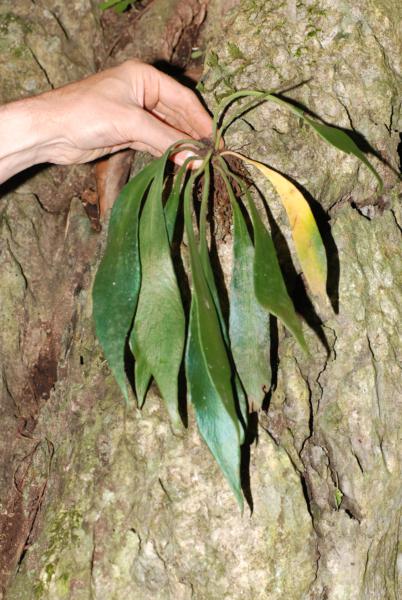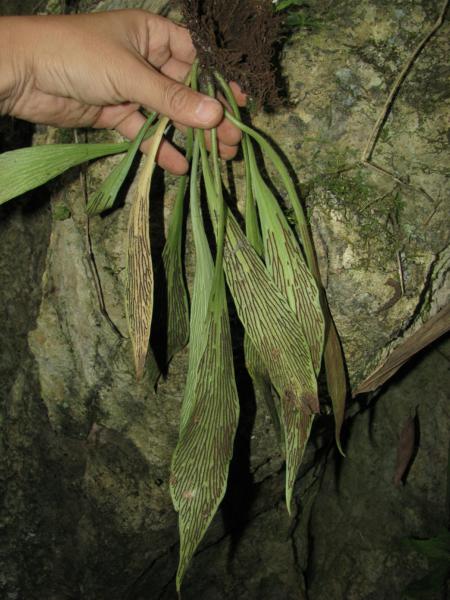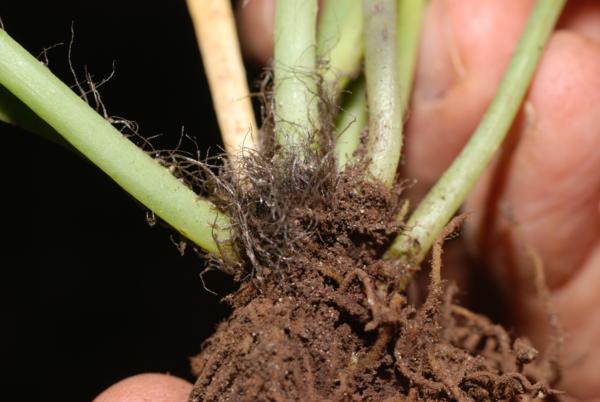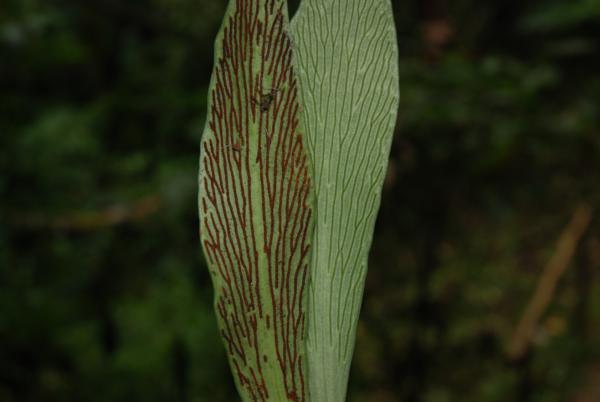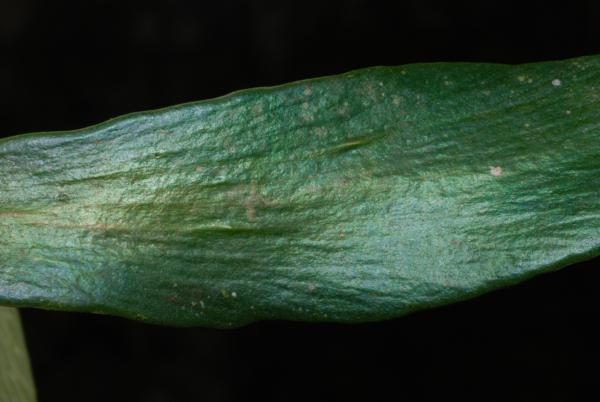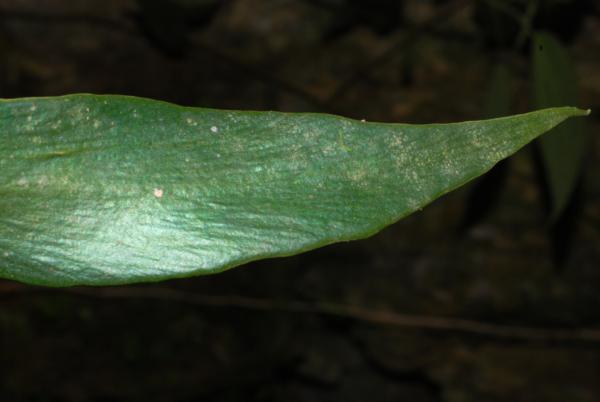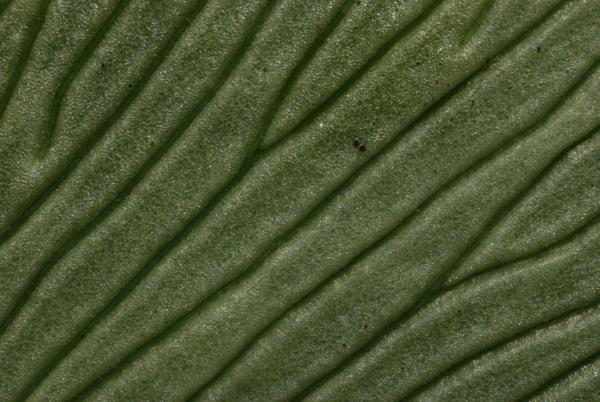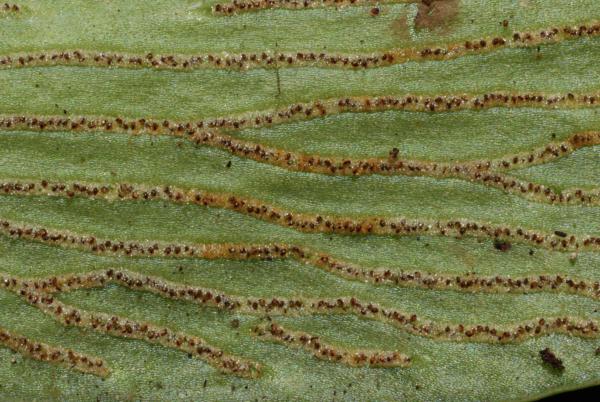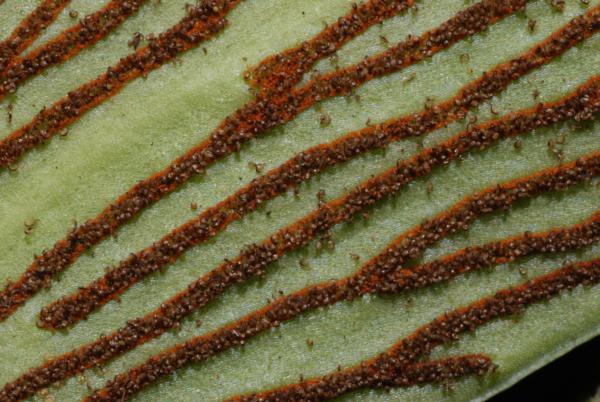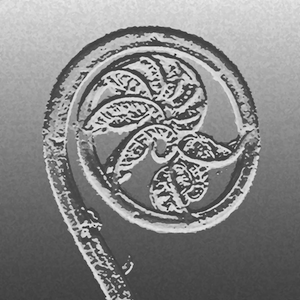
Antrophyum obovatum Baker
Family
Pteridaceae, subfamily Vittarioideae
Nomenclature
Antrophyum obovatum Baker, Bull. Misc. Inform. Kew 1898: 233. 1898; Tardieu & C.Chr., Fl. Indo-Chine 7(2): 202. 1940; Tagawa & K.Iwats., SouthE. Asian Stud. 5: 111. 1967; Tagawa & K.Iwats., Fl. Thailand 3: 220. 1985; Boonkerd & Pollawatn, Pterid. Thailand: 133. 2000.
Description
Epiphytic. Rhizome short creeping, bearing several fronds in a tuft, densely scaly; scales linear, gradually narrowing from base towards tailed apex, up to 7 by 1 mm, dark brown, densely toothed at margin. Stipes up to 8 cm long, dark green to dark brown, scaly in lower part. Frond obovate, broadest at about 1/5 part from apex, acuminate to cuspidate at apex, gradually narrowing downwards to narrowly cuneate base, up to 15 by 6 cm, entire but cartilaginous at margin, coriaceous to leathery, green, glabrous; costa indistinct, veins copiously anastomosing. Sori linear, in shallow furrows, usually anastomosing along veins; paraphyses short, club-shaped.
Distribution in Thailand
NORTHERN: Chiang Mai.
Wider Distribution
N India, China, Indochina, Taiwan, and as far north as Japan.
Ecology
On mossy tree trunks in lower montane forests at about 1500 m alt.
Proposed IUCN Conservation Assessment
Least Concern (LC). This species is common and widespread although not commonly collected in Thailand.
Voucher specimens - Thailand
Middleton et al. 5036, Chiang Mai, Doi Ang Khang (E).
Whole plant from above
Whole plant from below
Rhizome
Older and younger sori
Upper surface of frond
Frond apex
Very young sori in grooves
Young sori
Sori
Site hosted by the Royal Botanic Garden Edinburgh. Content managed by Stuart Lindsay, Gardens by the Bay, Singapore and David Middleton, Singapore Botanic Gardens. Last updated 24 January 2012
